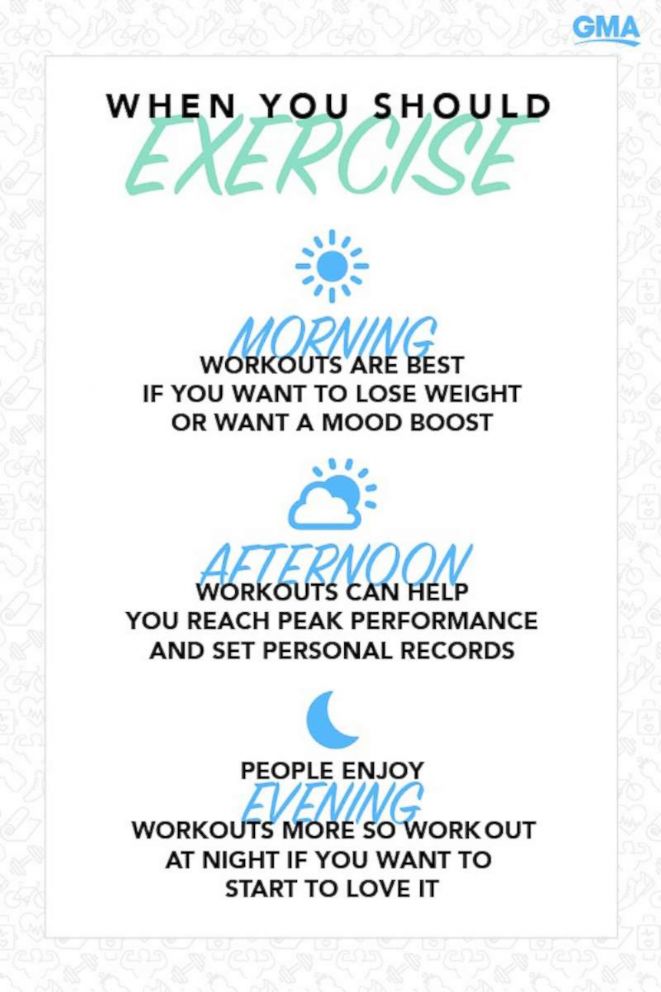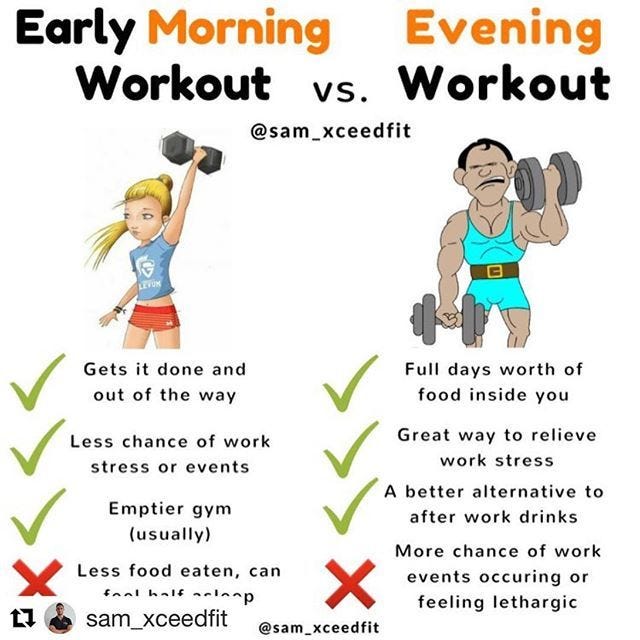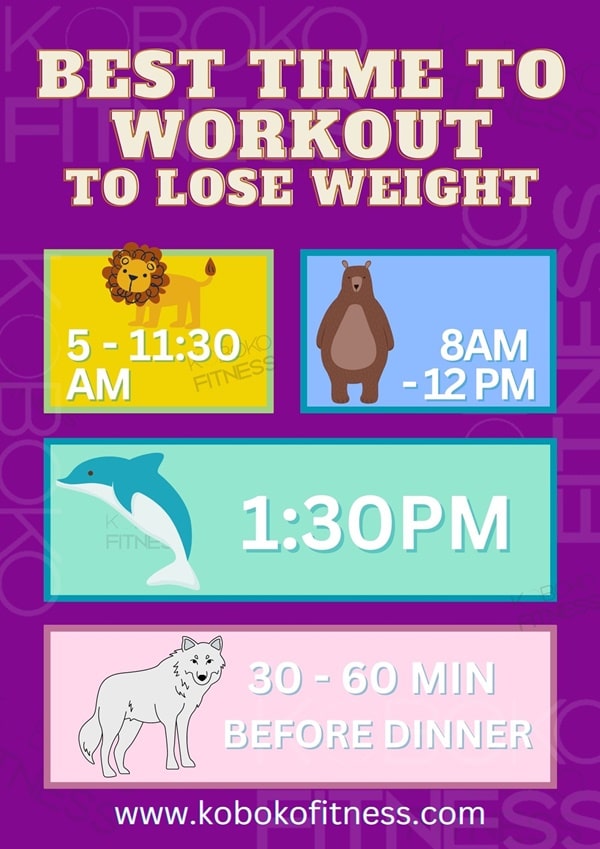Have you ever wondered what the best time to exercise is to help you lose weight effectively? The question may seem simple, but the answer can be quite complex, depending on various personal factors. Let’s break it down together and see how timing can impact your weight loss journey.
Unlock the Secret to Rapid Weight Loss – Start Now!
The Science Behind Exercise Timing
When you think about exercising, you might focus on the type of workout or the intensity. However, the timing of your workouts can also significantly affect your weight loss success. Research suggests that your body’s circadian rhythms, or the natural physiological processes that follow a roughly 24-hour cycle, can play a key role in determining when you should exercise.
Understanding Circadian Rhythms
Circadian rhythms affect your hormonal profile, energy levels, and even your metabolism. This means that your body may respond differently to physical activity at various times of day. Knowing how these rhythms work can help you find that sweet spot for your workouts.
-
Morning: Cortisol levels are generally higher in the morning, which can lead to improved fat oxidation. This makes the mornings an effective time for workouts if you enjoy getting your metabolism fired up early in the day.
-
Afternoon: Your body temperature rises in the afternoon, which can increase muscle function and strength. This might be the best time for those heavier weightlifting sessions.
-
Evening: By evening, your body is fully warmed up and may experience peak performance levels. If you’re a night owl, evening workouts could be the ideal fit for you.
Understanding these natural shifts can help you select the best time to exercise based on how your own body operates.
Morning Workouts
Let’s take a closer look at morning workouts. Early risers often tout the benefits of getting their fitness routine done before the day gets busy.
Benefits of Exercising in the Morning
-
Consistency: Morning workouts can help establish a routine. By prioritizing exercise first thing, you alleviate distractions that often arise later in the day.
-
Increased Metabolism: Starting your day with a workout can boost your metabolism. Many studies suggest that exercising in the morning helps your body burn calories more effectively throughout the day.
-
Enhanced Mood: Morning exercise releases endorphins, which can positively impact your mood and energy levels, setting a productive tone for the rest of the day.
-
Better Sleep Patterns: Regular morning exercise has been shown to help regulate sleep patterns. By encouraging a consistent routine, you may experience improved sleep quality.
Considerations for Morning Workouts
While morning workouts can be beneficial, it’s important to listen to your body. If you’re not a morning person, pushing yourself to exercise early might be counterproductive. You might feel fatigued or less motivated.
-
Hydration: One vital element to remember is hydration. Make sure to drink water upon waking to replenish fluids you may have lost during the night.
-
Snack Smart: If you plan to exercise in the morning, consider a light snack to fuel your workout. Something like a banana or a small protein bar can offer the quick energy boost you need.

Afternoon and Evening Workouts
While mornings tend to be popular, many find that afternoons or evenings align better with their schedules and energy levels. Let’s explore the benefits of these later workout times.
Benefits of Exercising in the Afternoon
-
Higher Performance Levels: Many studies have shown that strength and endurance are peaking in the afternoon. This means you might lift heavier weights or run further, maximizing your effectiveness during your workouts.
-
Stress Relief: Combining your workout with the natural dips in energy and focus during the afternoon can provide an excellent opportunity to relieve stress and refocus.
-
Social Opportunities: If you’re an extroverted person, finding a workout buddy or attending a fitness class in the evening might make your fitness journey more enjoyable.
-
Flexible Scheduling: For many, afternoons can be more convenient. With most workday obligations behind you, you might have a greater chance of sticking to your workout routine.
Things to Keep in Mind
Evening workouts come with their own set of considerations. Here are a few tips to maximize the benefits:
-
Avoid Heavy Meals: If you’re planning to work out in the evening, try to avoid heavy meals right before hitting the gym, as they can make you feel sluggish.
-
Wind Down: If you find that evening workouts interfere with your sleep, consider reducing the intensity or time of your sessions.
-
Consistency is Key: Regardless of when you choose to work out, the most important part is finding a routine you can stick with long-term.
The Role of Food and Nutrition
Your diet is an essential aspect of weight loss, and when you eat it may affect your exercise results. Timing your meals in relation to your workouts can have a significant impact.
Pre-Workout Nutrition
What you eat before your workout can impact your performance and recovery. Here’s a brief rundown of what might work best for you:
-
Carbohydrates: Consuming carbs 30–60 minutes before exercise can provide an energy boost. Foods like oatmeal or whole-grain bread are great options.
-
Protein: Including protein in your pre-workout snack can aid muscle building. A small amount of Greek yogurt or a protein shake can be effective.
Post-Workout Recovery
Don’t overlook the post-workout phase. This time is crucial for refueling your body and repairing damage done during exercise.
-
Ideal Timing: Aim to eat a meal rich in proteins and carbohydrates within 30–60 minutes post-exercise. This is the prime time for muscle recovery.
-
Hydration: Rehydrate with water or an electrolyte-replenishing drink. Staying hydrated can help with overall performance and recovery.

Personal Preference Matters
While understanding the science of exercise timing is beneficial, it’s extremely important to consider your personal preferences and lifestyle. Everyone is different, and what works for one person may not suit another.
Finding What Works for You
-
Experimentation: Try out different times of day for your workouts. Notice when you feel most energized and motivated. Keep a journal to track how you feel after morning vs. evening sessions.
-
Consistency: Once you find the time that feels right, commit to it. Consistent routines lead to better results, so make sure to stick to what suits you.
-
Listen to Your Body: Always pay attention to how your body responds. If you notice fatigue or lack of interest, it may be worth adjusting your workout timing.
The Correlation Between Exercise Duration and Weight Loss
The duration of your workouts is equally important as their timing. Understanding how long to exercise can further enhance your weight loss efforts.
Finding Balance in Workout Duration
-
Short and Intense: High-Intensity Interval Training (HIIT) is a fantastic way to burn calories quickly. These shorter workouts can be very effective in promoting weight loss.
-
Longer Steady-State Cardio: If you prefer longer sessions, moderate-intensity cardio, such as running or cycling for 60 minutes at steady pace, can also lead to significant calorie burns.
-
Strength Training: Incorporate resistance training into your routine. Lifting weights helps build muscle, which can elevate your metabolism even at rest.
Tips for Effective Workouts
-
Mix It Up: A combination of HIIT and steady-state workouts can create a well-rounded fitness routine.
-
Set Goals: Whether it’s length or intensity, erect clear and achievable workout goals to help maintain motivation.
-
Track Progress: Keeping a log of your workouts and progress can help you stay motivated and accountable.

Psychological Factors in Timing
Your mindset towards exercise can significantly impact your performance. Timing not only includes the physical aspect but also the psychological approach.
Motivation and Exercise Timing
-
Positive Associations: Find workout times that create positive associations. If morning workouts set a positive tone for your day, lean into that.
-
Reward Yourself: Create a motivational environment by rewarding yourself for sticking to your chosen workout routine.
-
Mindfulness in Exercise: No matter when you choose to work out, incorporating mindfulness techniques into your routine can enhance your experience and performance. Consider focusing on your breath or the movement of your body during exercises.
Summary
To wrap it up, determining the best time to exercise for weight loss is not a one-size-fits-all situation. While scientific research provides insights into our bodies’ natural rhythms, personal preference and lifestyle play substantial roles in your success.
-
Morning workouts can boost metabolism and foster consistency, while afternoon and evening sessions may allow for better performance and convenience.
-
Don’t forget the importance of nutrition before and after workouts. Fueling your body properly will maximize your efforts.
-
Most importantly, listen to your body and prioritize a routine that brings you joy and sustainability. Over time, the best workout time shall reveal itself as you continue on your journey toward optimal health and well-being.
By exploring different timings and paying attention to how you feel physically and mentally, you’ll land on what truly works for you. Remember, the best time to exercise is when you will actually do it!
Unlock the Secret to Rapid Weight Loss – Start Now!